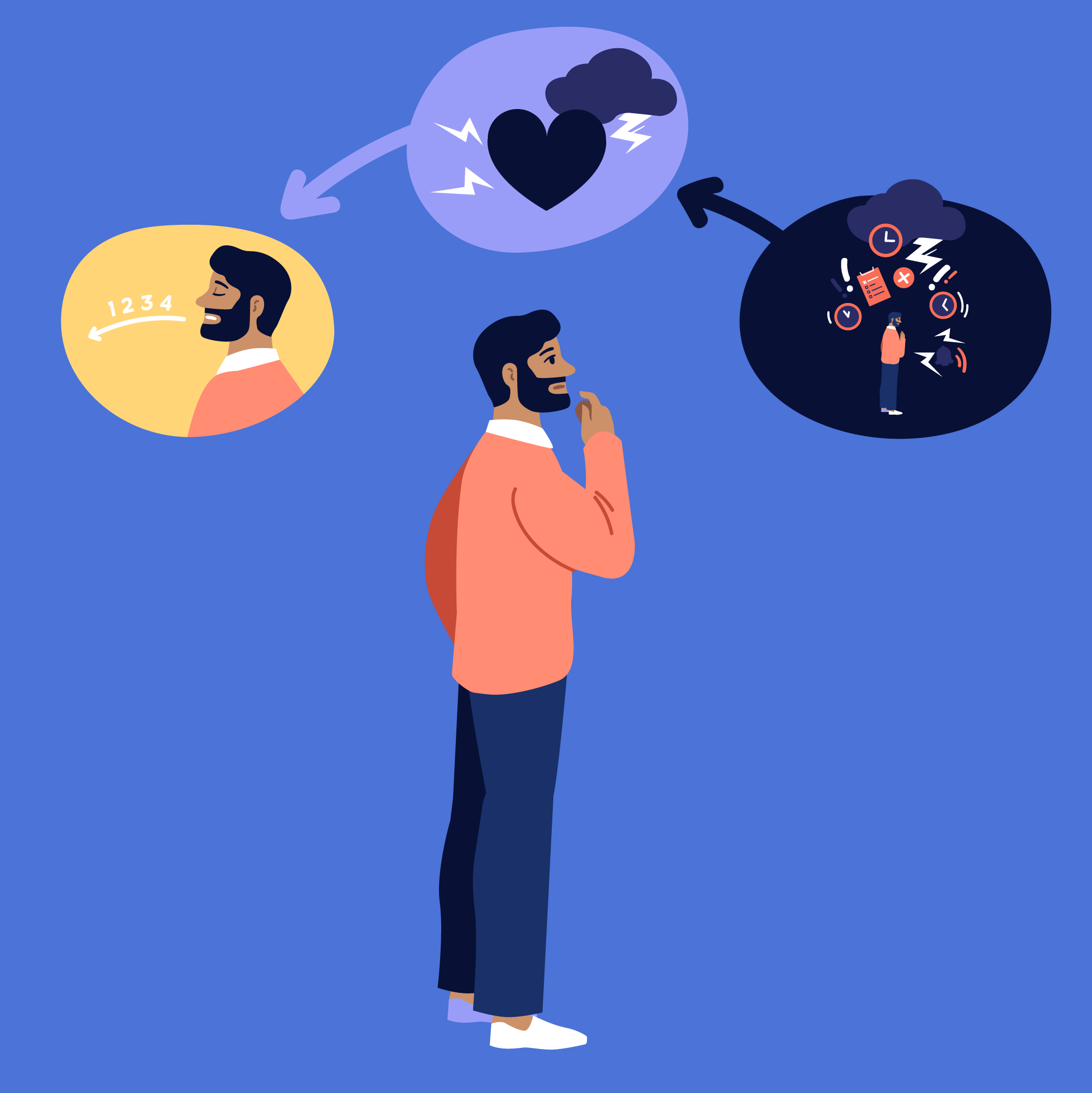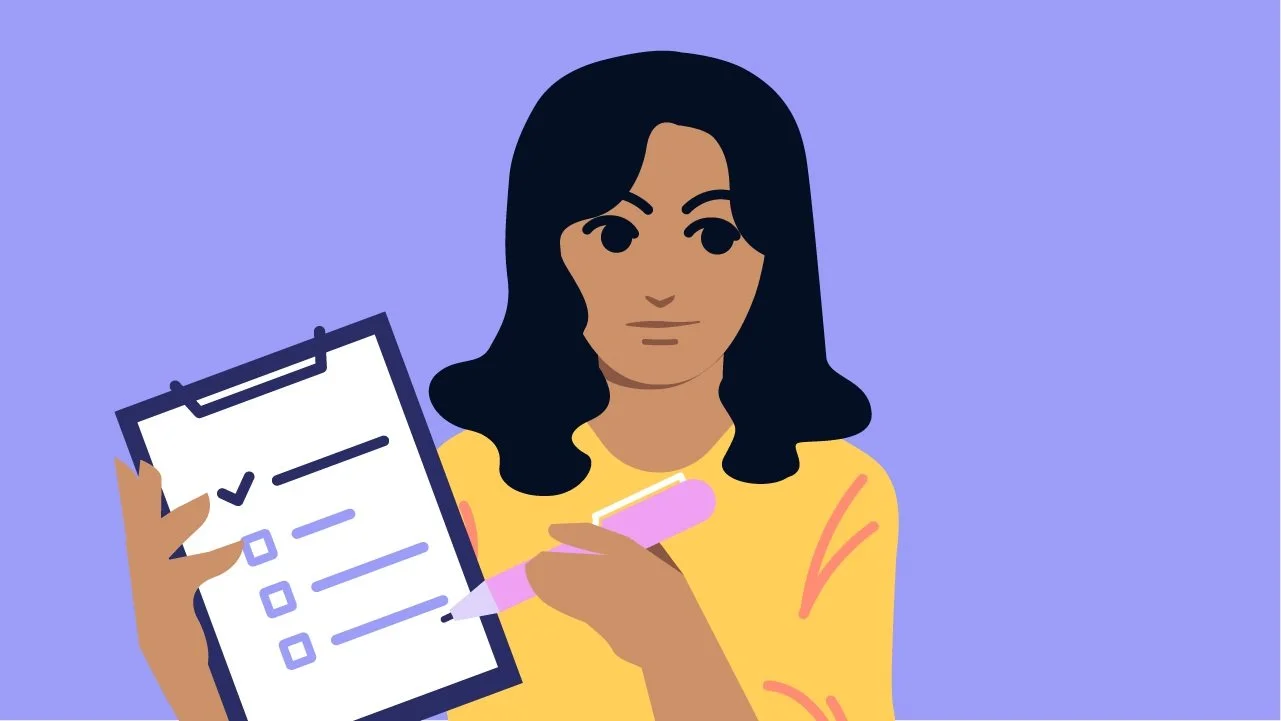COGNITIVE BEHAVIORAL THERAPY (CBT)
Cognitive behavioural therapy (CBT) is one of the most effective and commonly used types of therapy. It is based on cognitive and behavioural therapeutic approaches, combining the two to identify how your thought patterns and perceptions affect your feelings and behaviour. unhelpful thoughts and behaviours can lead to mental health problems. CBT works by identifying and modifying these dysfunctional thought patterns and maladaptive behaviours in order to alleviate distressing emotions. Your therapist will help you identify unhelpful thoughts and behaviours and work with you, using a variety of techniques, to help you challenge these thoughts and modify your behaviours in order to feel better. CBT counselling will provide you with skills to respond better in stressful situations and coping strategies to better deal with your symptoms.
CBT can be applied to a large number of mental health conditions and has been found to be the most effective treatment for many of them, even more so than medications. However, it does not only need to be used for disorders, it can also help you become more aware of negative thinking patterns, teach you to manage challenging life situations (such as grief), provide you with skills to enhance your relationships, and improve your overall quality of life.
Our mental health professionals are here to help you, whether you need to heal or want to thrive.
Get in touch to find out how we can help you. Contact us however you feel most comfortable, for example Whatsapp message us, or feel free to call us on +971 56 895 2347. You can also email or simply send us a query via our online form. Instagram message, Facebook chat… whatever works best for you!
Our goal is to make you comfortable.
CBT Cognitive Behavior Therapy
CBT is a broad concept. There are different subtypes of CBT Cognitive Behavior Therapy focused on addressing specific problems, life challenges, and disorders. It is a problem-specific solution-oriented form of therapy that focuses on your current problems (although working with past experiences is indicated at the leather stages of therapy and when treating problems like PTSD).
There is lots research-based and clinical evidence on the effectiveness of CBT. It has been developed and advanced with conditions and research findings in mind. It can be beneficial on its own or alongside medications. Our cognitive behavioural therapy in Dubai has proved effective for individuals of all ages and backgrounds.
How sessions are conducted
You will meet a psychologist in structured therapy sessions. CBT is a short-term solution-focused therapy and typically involves around 4 to 24 sessions depending on the problem. Each session lasts from 30 to 60 minutes. CBT is a collaborative therapy that requires you to work together with your therapist. You will discuss what you need and what problems you want to work on. CBT can be effectively delivered online or in person. It is usually in the form of individual sessions but group sessions are also common. You will also be given ‘in-between session practice’ to apply the techniques you learn in the sessions.
What it can help with
CBT can be used to treat a wide range of problems. It is generally the most popular and preferred type of therapy as it can quickly help you cope with a variety of challenges.
CBT has been proven to be effective in treating mental health disorders such as:
Mood disorders (including depression and bipolar disorder)
Anxiety disorders (including Post Traumatic Stress Disorder, social anxiety, and panic disorder)
Phobias
Sleep disorders
Substance-use disorders
Personality disorders
Sexual disorders
Schizophrenia
CBT has also been found to be effective in treating emotional challenges such as:
Coping with grief or loss
Anger management
Overcoming social withdrawal
Managing difficult emotions
Resolving behavioural problems in children and adolescents
Coping with stressful situations
Resolving marital problems/relationship conflicts
Improving communication
Relapse prevention (of addiction and other mental illnesses)
Managing symptoms related to mental disorders
Dealing with emotional trauma related to abuse
Coping with the distress associated with medical illnesses and chronic conditions.
CBT was originally created to treat depression but over time has evolved to treat far more conditions. There are also many versions and subtypes adapted for specific problems. Learn more about what is CBT therapy.
CBT vs Medication
CBT can be more effective than medications in the treatment of many conditions and can be a good option when it is not possible to prescribe medication. Its effects are also far more long-lasting than those of medications. Although some individuals prefer medication over psychotherapy as its effects are faster, CBT is quicker and more short-term than other talk-therapies. There are also no side-effects associated with CBT.
How CBT works
Instead of looking into the past to see what led to the harmful patterns, CBT focuses on changing your present thoughts, feelings, and behaviours. It changes the way you perceive things and allows you to be more aware of your unhealthy thought patterns are distorting your reality and negatively affecting your behaviour. You will receive frequent feedback at every step to see what you are doing right and what areas need to be worked on. Your therapist will work closely with you on this. CBT encourages you to take control and to identify, challenge, and change how you think and react to situations. This will then alter your automatic actions and responses and make it easier for you to constructively solve problems and reduce stress. CBT can also improve your emotions, mood, and relationships.
There are a number of principles and beliefs that CBT is based on. These include:
Psychological problems can be caused by harmful or flawed ways of thinking.
Learned patterns of unhelpful behaviour can lead to psychological problems.
It is possible to change distortions and perceptions and learn more beneficial methods of thinking and behaving.
You can learn better ways to cope with psychological problems and act in more productive ways
New habits can help you relieve symptoms of mental and physical conditions allowing you to improve your quality of life
CBT decreases distress and allows you to function in a more beneficial way by using strategies to transform distorted thinking patterns, perceptions, and behaviours.
This then leads to more positive outcomes in all areas of your life.
Some methods used to change thinking patterns include:
Encouraging you to develop more confidence in your abilities.
Teaching you to recognize unhelpful thoughts that are causing problems.
Teaching you to reevaluate distorted thoughts and perceptions in the light of reality.
Enabling you to use problem-solving skills to cope with difficult situations.
Allowing you to gain a better understanding of other people’s behaviour.
Some methods used to change behavioural patterns include:
Making you face your fears instead of avoiding them, by gradually increasing exposure to feared stimuli so you can see there is no reason to fear.
Teaching you tools to calm your mind and relax your body.
Making you part-take in role-play activities with your therapist to prepare for stressful situations and problematic interactions with people.
What can you learn from CBT?
You can learn a lot of helpful tools from CBT, including:
Becoming more aware of automatic thoughts and moods
Being able to identify problems more clearly
Distinguishing between factual and irrational thoughts
Challenging your incorrect unconscious assumptions
Developing skills to not be fearful and expect the worst in situations
Learning to view situations from the perspectives of others too
Understanding how people think and why they act the way they do
Establishing achievable goals
Learning to face your fears instead of avoiding them
Dealing with stressful and difficult situations
Focusing on accepting the way things are instead of how they should be or how you want them to be
Learning to stop blaming yourself for everything
Developing a more positive outlook towards situations and life in general
Becoming more understanding and accepting of yourself and others rather than judging
Avoiding generalizing things
Developing more fluid thinking instead of ‘all-or-nothing’/‘black-and-white’ thinking
Strategies used in CBT
Strategies used to alleviate negative thinking and behaviour and achieve positive results include:
Identifying negative thoughts
Learning how your thoughts, feelings, and perceptions can contribute to maladaptive behaviours. This can be difficult at first but will lead to essential insights and self-discovery, aiding the treatment process.
Practicing new skills
Practicing the new skills learned during therapy and applying them to real-world situations will promote long-term behavioural change and growth outside therapy sessions.
Solving problems
CBT teaches you many problem-solving and coping skills. Using these to help identify and resolve issues that cause stressors will reduce the negative impact of the problems. There are five important steps in problem-solving that you must follow when difficult situations arise:
Identifying a problem
Creating a list of possible solutions
Evaluating advantages and disadvantages of each possible solution
Choosing which solution you want to implement
Implementing the chosen solution
Setting SMART goals
Setting both short-term and long-term goals can be a very useful step in treatments. It will help you make changes and improve in order to meet the goals. During CBT you will learn goal-setting skills and discover how to identify practical and helpful goals. These should SMART goals:
S - Specific (to your problem)
M - Measurable (you should be able to measure if you have improved or not)
A - Attainable (realistically possible)
R - Relevant (should align with/be related to your objective)
T - Time-based (short-term (5 weeks), long term (5 years), or in the middle (5 months))
Self-monitoring
Using a diary to track your feelings, behaviours, symptoms, or experiences. You can work on this between sessions and discuss them with your therapist. This will provide your therapist with the necessary information to provide relevant treatment and focus on specific problems.
Gradually progressing
CBT is short-term, compared to most therapies, but is still a gradual process. It will help you take incremental steps towards more positive thinking patterns and behavioural change. You will first learn the skills needed to combat negative thoughts, then you will imagine/role-play what to do in specific situations, then you will learn strategies to cope with situations and how to act, and then you will implement and practice what you have learned. Breaking it down into smaller steps will make the process less challenging and make it easier to achieve your goals.
Efficacy of CBT
CBT has been proven to be one of the most effective forms of treatment, with some studies showing it to be more efficacious than psychiatric medication and other psychological therapies. It has been considered to be the ‘gold standard’ of therapy. It is backed up by scientific research support and fits all the international guidelines for psychological treatments. CBT is a first-line treatment for several disorders due to its proven results and empirical basis. It is one of the most effective and commonly used treatments for anxiety and depression and has been found to be as beneficial as antidepressants in many cases. Its progressiveness helps enhance its efficacy as it is ever-evolving based on new research. It is highly effective in the treatment of children, adolescents, and adults.
A meta-analysis of various studies found that 65% of them showed CBT to have the greatest responses and results compared to other treatments (psychotherapies and medications). The study found positive response rates for a number of different conditions, including:
Borderline personality disorder - 82%
Panic disorder - 77%
Anger issues - 66-69%
Depression - 51-87%
Childhood anxiety - 56%
Chronic fatigue - 40-50%
Personality disorders - 47%
Generalized anxiety disorder - 46%
Bulimia nervosa - 40-44%
Obsessive-compulsive disorder - 38-50%
The clinical and research-based evidence of the effectiveness of CBT is significantly strong. CBT treatments also have the lowest rates of relapse of any psychological therapy.
FAQ’s
How many sessions will I need?
The number of sessions will be decided after an assessment of the problems you are facing and the severity of them. CBT is more short-term and typically can last between 5-20 sessions. Longer-standing, more severe problems can sometimes require more than 20 sessions. The number of sessions will also depend on your progress.
How often will I need to come into the clinic?
Sessions are generally held once a week for 30-60 minutes. You will only need to come in to meet with your psychologist during these sessions. Online CBT is also an option we provide. It has proven to be as effective and can be done from the comfort of your own home.
What does it help with?
CBT has been shown to effectively help with several different types of problems. These include anxiety disorders (including panic disorder and post-traumatic stress disorder), depression and mood disorders, phobias, bulimia, body dysmorphic disorder, obsessive-compulsive disorder, bipolar disorder, and psychosis. CBT may also help you deal with and manage stress, control your anger, increase self-esteem, and manage issues related to chronic physical health problems.
What about medication?
CBT has been found to be as, if not more, effective than medication for some conditions. CBT can be conducted on its own or can be offered alongside medication. Many studies have shown that individuals respond best to a combination of medication and cognitive therapy when medication is needed.
How can I make sure I get better after therapy?
An important part of CBT is to practice and work on the skills you use in therapy between sessions. Your therapist will provide you with homework activities to be able to do this. It can also be helpful to self-monitor by keeping a diary where you write down your feelings, behaviours, and experiences throughout the week. You can then discuss them with your therapist who will help target the problems you are facing. Setting goals can also be beneficial as it helps you track your progress and work towards something. You must gradually implement what you learn in therapy into your everyday life.
Why should I choose CBT over other therapies?
CBT is more solution-oriented, short-term, and patient-centered than other therapies. This means it will focus on targeting your specific problem, fast, and do so by actively involving you throughout the process. Your opinions will be valued and you and your therapist can both provide feedback to each other about what is and is not working. It is evidence-based, and for many psychological conditions, CBT is the most effective therapy. It is also equally effective for people of all ages and backgrounds.
Thrive Specialists in CBT
Dr. Kate Prozeller
Licensed Psychologist
Dr. Kate Prozeller is a CDA-licensed psychologist. She holds her PsyD in Counseling Psychology from Saint Mary’s University in the United States. Dr. Kate provides individual therapy to adults, couples therapy, and English-language art, sand, and play therapy to children and adolescents. Prior to relocating to Dubai in 2019, she has worked as a psychologist in the United States, serving a variety of patient populations and across hospitals, private practice, and university settings.
Pashmi Khare, M.Sc.
Licensed Psychologist
Pashmi Khare is a CDA-licensed psychologist with MSc in Counseling Psychology from Christ University, India and has been practicing for more than 8 years in India and UAE. She provides counseling for adults, adolescents, and couples in English, Hindi, and Urdu. She has a special interest in supporting individuals with fertility issues and PCOS.
Jessica Rosslee, M.A.
Licensed Psychologist
Jessica Rosslee is a DHA-licensed Clinical Psychologist. She obtained her Master’s degree in Clinical Psychology at the University of the Free State, South Africa, in 2011. Jessica’s clinical interests and extensive expertise cover a broad range of mental health conditions or problematic concerns.
Cynthia Ghosn
Psychology Technician & Early Career Professional
Cynthia is a DHA-licensed Psychology Technician. She is in the process of completing her Ph.D. in Clinical Psychology at Meridien University in the USA. She works with adolescents and adults who are experiencing anxiety, depression, burnout/stress, life transitions, and relationship issues. Cynthia is part of our Early Career Professional (ECP) program, which means that she works closely under the supervision of Clinical Advising Director, Dr. Chasity O’Connell. In an effort to make therapy more accessible and support the growth and development of clinicians in the field, we are offering an adjusted pricing structure through our ECP program.
Joslin Gracias, M.A.
Licensed Psychologist
Joslin is a CDA-licensed psychologist. She holds an M.A. in Clinical Psychology from S.N.D.T. University in India. Joslin works with adolescents, adults, and couples who are experiencing depression, anxiety, relationship difficulties, trauma, and burnout/stress.
Sam Menon
Licensed Psychologist & Early Career Professional
Sam is a DHA-licensed Psychologist. She holds an M.Sc. in Abnormal and Clinical Psychology from Swansea University in the UK. She works with adolescents and adults who are experiencing depression, burnout/stress, and difficulties adjusting to new phases of life (university and workplace). Sam is part of our Early Career Professional (ECP) program, which means that she works closely under the supervision of Clinical Advising Director, Dr. Chasity O’Connell. In an effort to make therapy more accessible and support the growth and development of clinicians in the field, we are offering an adjusted pricing structure through our ECP program.
Corina Saramet, M.A.
Licensed Psychologist
Corina is a CDA-licensed psychologist specializing in working with adults and adolescents (16+). She obtained her Master’s Degree in Cognitive Behavioral Psychotherapy at the University Titu Maiorescu in Romania. Her areas of expertise include anxiety disorders, depression, grief and loss, trauma, and stress.
Dr. Dana Jammal
Licensed Psychologist
Dr. Dana is a UK-trained HCPC registered Counselling Psychologist who completed her doctorate training at City, University of London. She also holds a Master of Science degree in Mental Health Studies from the Institute of Psychiatry, Psychology and Neuroscience at King’s College London and a Bachelor of Science Honors degree in Psychology from McGill University in Canada. Dana has over 10 years experience working with individuals facing a range of mental health difficulties and challenges.
Judy Seoud, M.Ed., M.A.
Licensed Psychologist
Judy Seoud is a Licensed Psychologist and Sex Therapist with a double Master’s degree in Counseling Psychology from Columbia University (USA). Judy works with individuals facing issues related to anxiety, depression, anxiety, stressful life changes, communication, sex and intimacy, and social justice. She also helps couples improve their intimacy.
Michelle Estekantchi, M.Ed.
Licensed Psychologist
Michelle Estekantchi is a Licensed Psychologist with a Master’s degree in Counseling Psychology from Memorial University (Canada). She works with children, adolescents, and adults across a range of issues including anxiety, depression, relationship issues (peer, family), burnout, and self-esteem issues. Michelle also conducts psychoeducational and ADHD assessments.
Dr. Manuela Paone
DHA-Licensed Psychologist
Dr. Manuela is a DHA-Licensed Clinical Psychologist (Dubai) with active licenses in the UK and Italy. She has over 20 years of experience supporting adults through a range of challenges including anxiety, depression, and relationship issues (parent-child as well as marital). Dr. Manuela has a special interest in neurodivergence, including Autism Spectrum Disorder and ADHD. She has a wealth of experience in the UK and Middle East, which has provided her with an opportunity to work with people from diverse cultural contexts, integrating culture, religion, and personal background into her work.
Christi Gadd, M.Sc.
DHA-Licensed Psychologist
Christi Gadd is a DHA licensed Clinical Psychologist (Dubai) and an HPCSA registered Clinical Psychologist and Neuropsychologist (South Africa). She has many therapeutic interests including anxiety, depression, and relationship challenges. Christi is particularly interested in the transition to expat life. One of the things she loves most is accompanying people on their journeys of self-discovery and self-actualization. Her interests are best summarised as a curiosity to learn more and more about what makes us human, especially our brains.
Dr. Jessica Rios-Habib
DHA-Licensed Psychologist
Dr. Jessica Rios-Habib is an American psychologist who has obtained licensures to practice in the US, Canada, and Dubai. Her university training at the University of North Carolina, Chapel Hill (USA) and the University of Miami (USA) have earned her a B.S., MS.Ed., and a Ph.D. in Psychology. She completed a post-doctoral fellowship at the University of Miami’s Miller School of Medicine (USA), followed by another at University of Toronto’s Sick Kids Hospital (Canada), which further specialized her skills in pediatric psychology, child development, and family systems.
Having been based in Dubai since 2010, and a strong believer in research-based science, compassionate ethics, and a growth mindset for individuals and organizations, Dr. Jessica has expanded her reach to not only clinical, family, and school/athlete populations, but also professional and corporate organizations striving for greater success and healthier well-being in the workplace and global settings.
Learn More About Dr. Jessica →
Juan Korkie, M.A.
DHA-Licensed Clinical Psychologist
Juan is a Clinical Psychologist with over two decades of international experience, licensed in the UAE, UK, and South Africa. He works with individuals, couples, and families, offering both online and in-person sessions. His therapeutic approach with individuals is grounded in Schema Therapy, while his work with couples is based on his own model, Structural Experiential Couple Therapy, which he is currently in the process of publishing. This approach integrates systemic, constructivist, and polyvagal foundations to create a structured, emotionally grounded process of change. Having lived and worked across four countries and diverse clinical settings, Juan offers a direct, practical, and deeply informed approach that balances emotional depth with clear structure and direction.
Learn More About Juan →
Dahlia Yamout, M.A.
CDA-Licensed Psychologist
Dahlia Yamout is a licensed clinical psychologist based in Dubai, with a Master’s in Clinical Psychology from Columbia University. She works with adults navigating trauma, anxiety, depression, relationship struggles, life transitions, and perfectionism. Her integrative approach draws from Relational Therapy, Attachment Science, EMDR, EFT, and Schema Therapy.
Dahlia is trauma-informed and culturally attuned, helping clients explore the ways they’ve adapted to early experiences—often through people-pleasing, emotional detachment, or self-criticism—and gently guiding them toward healing, connection, and self-understanding.
She believes that change begins with a safe therapeutic relationship and would be honored tosupport you in your growth.
Our mental health professionals are here to help you, whether you need to heal or want to thrive.
Get in touch to find out how we can help you. Contact us however you feel most comfortable, for example Whatsapp message us, or feel free to call us on +971 56 895 2347. You can also email or simply send us a query via our online form. Instagram message, Facebook chat… whatever works best for you!









































